35 Love Facts That Will Amaze You: Science-Backed Insights
Science and research have more to speak of love than you ever expected.

Image: Shutterstock
Love is often depicted with stolen kisses, whispers of sweet nothings, hidden dalliances, and a lot of cuddling. An interesting love fact is that biology plays a huge role in how you feel when you think you’re in love. Keep reading to know more love facts like this!
When you find new love, everything seems profound. Those silent looks of desire, when your fingers touch, can leave you breathless and wanting more! Just spending time together makes you so happy. But did you know that you experience some of those feelings because of particular chemicals released in your body? With everything being so romanticized these days, you may not know there is a lot of science behind how we feel when we are in love. So, if your mind is tingling with curiosity, scroll down. We have added some interesting and educational scientific facts about falling in love. Sit back and get reading!
In This Article
35 Love Facts That Will Amaze You
1. Love Makes Your Live Longer
Love and marriage may give you a longer life. According to a study published in the Journal of Marriage and Family, married people are 58% less likely to die over an 8-year period than people who never got married (1).
2. Love And Lust Affect Different Areas Of The Brain
One-night stands do not always result in a fairytale romance. Studies show that being in love activates the regions in the brain that are connected to empathy (2). However, lust is connected to the areas of the brain that are mainly associated with motivation and reward.
3. Red Rose Is The Official Flower Of Love
 Did you know?
Did you know?Have you ever wondered why roses are the symbol of love? This is because the rose is considered to be the favorite flower of Venus, the Roman goddess of love.
4. Love Makes You Do Crazy Things…
…like making a scene, escaping from jail to see the person you love, or just acting plain silly. Do you know what happened to Joseph Andrew Dekenipp, a prisoner in Arizona? He broke out of jail just so he could meet his girlfriend for Valentine’s Day.
5. The World’s Longest Marriage Lasted 86 Years
If you often complain that true love does not exist, just look up Herbert and Zelmyra Fisher. This couple holds the record for the longest marriage in history. They were married for a staggering 86 years and 290 days.
6. Love Makes You More In Tune With Your Emotions
When you find the one who makes you strive to be the best version of yourself, your brain also responds accordingly. According to a study published in Cognitive, Affective & Behavioral Neuroscience, the social connection that comes with being in a happy relationship activates the parts of the brain that are responsible for emotional processing and selflessness (3).
7. Love Develops In Phases
Anyone who has ever experienced love knows that it develops in phases. It increases in intensity gradually. It starts out strong and passionate but gradually mellows down into a more mature and understanding love.
 Trivia
Trivia8. Love Lowers Your Blood Pressure
We all know that high blood pressure is associated with a higher risk of stroke and heart disease. Fortunately, according to a study published in Annals of Behavioral Medicine, being happily married can result in lowered blood pressure (4). So, go and kiss your partner for keeping you healthy!
9. Love Helps You Heal Faster
Having your partner by your side when you are injured or sick does not just get you emotional support. When partners share a close bond, their injuries are claimed to heal faster compared to people who are in unhappy relationships.
The Netherlands Study of Depression and Anxiety (NESDA) included 1816 Dutch adults in a study focusing on the relationship between happiness and depression. A total of 2981 persons aged 18 to 65 years were included in the study over the course of three years. It concluded that happiness was inversely associated with psychiatric disorders and their severity.
10. Men Fall In Love Faster Than Women
A study published in The Journal of Social Psychology found that men take the first step when they fall in love (5). They are usually the ones who say “I love you” first in a relationship. This may be because women are more scared of getting their heart broken.
11. Being In Love Reduces Headache Frequency
If you have chronic headaches, love might be what you are looking for. A study conducted at the Stanford University School of Medicine found that 50% of the participants who were having a headache reported their pain reduced by half after around four hours when they were administered a nasal spray with a dose of oxytocin, a love hormone. An additional 27% stated that they did not feel any pain at all after the same duration (6).
12. Love And Laughter Go Together
If you want to be closer to your partner, watch a comedy TV show together. A study published in Personal Relationships found that couples who laugh together are more satisfied in their relationship and more supportive of each other when compared to those who were more serious with each other (7).
13. Distance Can Strengthen A Relationship
People often say that long-distance relationships don’t work, but research says otherwise. According to a study published in the Journal of Communication, long-distance relationships are not only as successful as regular relationships, but they are also better at building trust between partners (8).
 Pro Tip
Pro Tip14. Being In A Relationship Can Improve Your Personality
Pessimistic people are known to change for the better when they fall in love. A study published in the Journal of Personality observed 245 young couples for nine months (9). The scientists found that neurotic partners in a relationship became more self-confident and optimistic because of all the positive experiences and emotions that come with being in a relationship.
15. Love Can Ease Chronic Pain
Love is not going to replace modern medicine any time soon. However, it can come in handy if you ever experience serious pain. In a study conducted by the Stanford University School of Medicine, researchers found that the warm and fuzzy feeling that love creates has the same response in the brain as strong painkillers do (10).
16. Cuddling Is Good For You
There’s a good reason why couples love cuddling so much. Cuddling triggers the release of oxytocin, the happiness hormone that improves your mood and increases your feeling of well-being. That is why oxytocin is referred to as the “love hormone” or the “cuddling hormone.”
17. Love Is Chemically Addictive
Romantic love can be a very powerful addiction. This is because the hormones that your brain releases when you are in love are euphoric. In fact, you may get so high that it can make you feel addicted to love as well as to the person you are in love with.
18. Love Is The Number One Reason Why People Get Married
More than 60% of the world’s population are claimed to cite love as the reason they got married. The rest stated that financial stability was their determining factor.
Ronald Hoang, a Relationship and Family Counselor, shares an interesting fact, “The idea of romantic love leading to marriage is a contemporary concept. Marrying the “love of your life” is a modern idea. People used to marry for economic reasons – marriage used to be pre-arranged and families would marry their children to improve the financial status of the family.”
19. The Heartbeats Of A Couple Are Synchronized
When you and your partner gaze into each other’s eyes, your heart rates sync up. This has been stated by scientists at the University of California. The researchers found that a couple’s heart rates can be almost identical. This may be because of the strong link between couples on both a physical and an emotional level (11).
20. Animals Can Be Monogamous As Well
Humans are not the only species on the planet that have monogamous relationships. Wolves, seahorses, beavers, otters, and barn owls are a few of the other species that mate for life.
21. Hugging Your Partner Can Relieve Stress Instantly
Feeling stressed? Hug it out with your partner. According to a study conducted by the University of North Carolina, when couples hug, it increases the level of oxytocin in their bodies (12). As mentioned earlier, oxytocin reduces stress and boosts your mood. So if you are having a rough day, ask your partner to give you a tight hug!
22. Falling In Love Feels Like Being On Drugs
That feeling of euphoria you experience when you fall in love is essentially the same feeling that drug users experience (13). Both of these events trigger the release of hormones like adrenaline, dopamine, and oxytocin that give you a real high.
23. It Can Take Just 4 Minutes To Feel Attracted To Someone
If you wish to make a good impression on someone, you only have about 4 minutes to do so. It is believed that it has more to do with the tone of your voice and your body language than what you actually say.
24. Both Men And Women Must Have A Certain Level Of Testosterone For Sexual Attraction
Yes, even girls have small amounts of testosterone in their bodies. Testosterone is responsible for arousing desire as well as aggressive behavior – which actually pushes the person to pursue the object of their desire.
25. Being In Love Has A Similar Neurological Effect As That Of Cocaine
Being in love is almost like snorting cocaine. Both experiences trigger a similar sensation. Researchers have found that being in love can result in the production of several euphoria-inducing chemicals, which stimulate 12 areas of the human brain at the same time (14).
26. Couples Who Are Very Similar To Each Other Are Not Likely To Last
Everyone knows that opposites attract. Research proves that this is at least partially true. Partners who are too similar or too different don’t last very long. There must be some similarities, but there also have to be some differences so that the two people can learn from one another.
27. Heartbreak Is Real
There is evidence that severely traumatizing events – such as a divorce, death of a loved one, a break-up, physical separation, cheating, or betrayal – can cause real physical pain around the heart. This condition is known as Broken Heart Syndrome (15).
Intense emotional distress triggers the brain to release certain chemicals that weaken one’s heart, leading to shortness of breath and chest pain. This condition is so intense that it is often misdiagnosed as a heart attack. It affects women more often than men.
28. People In Love Have Hormonal Levels Similar To People With OCD
People in the early stages of love are said to have lower levels of serotonin, a hormone that is directly associated with feelings of well-being and happiness. They also have higher levels of cortisol, which is associated with stress. This is very similar to the people who have OCD or Obsessive Compulsive Disorder.
This explains why we don’t behave like ourselves when we fall for someone. It works the other way as well – people who have lower levels of serotonin tend to fall in love and get involved in sexual relationships quicker than others.
29. The Feeling Of Butterflies In The Stomach Is Real
When you fall in love with someone, you can feel the butterflies in your tummy every time you see that special someone. This sensation is caused by adrenaline, which is released in your body as a flight-or-fight response.
30. Dilated Pupils Show That You Are Attracted To Someone
Your pupils expand during heightened focus and attention. This is true – it usually occurs when people gaze at the object of their desire, even if it is only a video or a picture. Moreover, people who have dilated pupils look more attractive to others.
31. You Are Attracted To People With A Different Immune System
If this isn’t weird, we don’t know what is. This was observed during a study at the University of Switzerland where the female test subjects smelled worn men’s T-shirts (16). They consistently preferred the smell of those men’s shirts whose immune systems were different from their own.
32. Some People Can’t Feel Love
Some people who claim never to have fallen in love or felt romantic love may be affected by a condition called hypopituitarism that does not allow people to feel the high of love. Of course, it is also possible that said people are aromantic.
33. Your Body Has A “Vein Of Love”
Why are engagement rings worn on the fourth finger of the left hand? That is because the ancient Greeks believed that this finger has the vena amoris, or the”vein of love,” that connects straight to the heart. So romantic!
Apart from the above mentioned facts, there are some truly interesting psychology-based ones you should know about.
Psychological Facts About Love
34. Love Is Based On Chemical Bonding
Love triggers the release of neurotransmitters, namely dopamine, oxytocin, and serotonin. Dopamine, associated with pleasure, reinforces the desire for connection, while oxytocin fosters bonding and a sense of security (17). Serotonin, linked to mood regulation, enhances feelings of happiness. This chemical interplay strengthens the emotional bond between a couple and explains the addictive nature of love, linking it with pleasure and reward.
35. Partners Follow Certain Attachment Styles
Love is influenced by attachment styles developed in one’s childhood (18). Attachment theory suggests that people exhibit secure, anxious, or avoidant attachment patterns. Those with secure attachments grow up to form healthy, trusting relationships, while anxious kids may deal with abandonment issues, seeking constant reassurance. Avoidant children may struggle with intimacy and distance themselves emotionally.
It is a well-known fact that love is one of the strongest emotions you can feel. It makes you feel the highest of highs and the lowest of lows, but true love can be wonderful to experience in your life. For instance, it makes you feel more connected to your emotions, lowers blood pressure, and even reduces the frequency of headaches! Not just that, being with someone you love and who loves you can positively impact your personality by making you more confident and optimistic. Isn’t that wonderful?
Frequently Asked Questions
What is the strongest love?
The strongest form of love is referred to as agape— which translates to selfless love.
Can you be in love with 2 people?
Yes, you may be in love with more than one person if you are polyamorous. Polyamory refers to the act of keeping romantic relationships with more than one person at a time.
What is the purest form of love?
The purest form of love is selflessness or unconditional love, where there is no expectation of anything in return. Such love may be extended to the whole of humanity and need not be restricted to one particular person.
What are the 5 stages of love?
The five stages that are encountered in every romantic relationship include:
• Merge
• Doubt and senial
• Disillusionment
• Decision
• Wholehearted love
Is it possible to love forever?
Yes, it is possible to love forever, if forever refers to a lifetime. Lifelong romantic relationships are not uncommon.
Key Takeaways
- Love and lust are two different things. While both give a similar rush, they activate two separate areas of our brain.
- The love and support of your partner can keep your blood pressure levels low and help you heal faster.
- When you are in love with your partner, their hug makes you feel great after a stressful day, and their cuddles improve your mood and health overall.
- There are some people who never fall in love. There are also some people who actually experience heartbreak called broken heart syndrome.
Discover the fascinating world of love with 56 mind-blowing psychological facts stated in this video. Watch it now to understand the intricate workings of emotions and connections in relationships.
References
Articles on StyleCraze are backed by verified information from peer-reviewed and academic research papers, reputed organizations, research institutions, and medical associations to ensure accuracy and relevance. Read our editorial policy to learn more.
- Cohabitation and U.S. Adult Mortality: An Examination by Gender and Race,
https://pdfs.semanticscholar.org/7cce/ccabae943fe2d4822891b0f865f72981f924.pdf - The neurobiological link between compassion and love,
https://www.ncbi.nlm.nih.gov/pmc/articles/PMC3524717/ - The neural correlates of social connection,
https://www.ncbi.nlm.nih.gov/pubmed/24984693 - Is There Something Unique about Marriage? The Relative Impact of Marital Status, Relationship Quality, and Network Social Support on Ambulatory Blood Pressure and Mental Health,
https://www.researchgate.net/publication/5504344_Is_There_Something_Unique_about_Marriage_The_Relative_Impact_of_Marital_Status_Relationship_Quality_and_Network_Social_Support_on_Ambulatory_Blood_Pressure_and_Mental_Health - Women and Men in Love: Who Really Feels It and Says It First?,
https://www.tandfonline.com/doi/abs/10.1080/00224545.2010.522626 - Oxytocin and Migraine Headache,
https://headachejournal.onlinelibrary.wiley.com/doi/pdf/10.1111/head.13082 - Putting Laughter in Context: Shared Laughter as Behavioral Indicator of Relationship Well-Being ,
https://www.ncbi.nlm.nih.gov/pmc/articles/PMC4779443/ - Absence Makes the Communication Grow Fonder: Geographic Separation, Interpersonal Media, and Intimacy in Dating Relationships,
https://onlinelibrary.wiley.com/doi/abs/10.1111/jcom.12029 - Recent Decreases in Specific Interpretation Biases Predict Decreases in Neuroticism: Evidence From a Longitudinal Study With Young Adult Couples,
https://onlinelibrary.wiley.com/doi/abs/10.1111/jopy.12102 - Viewing Pictures of a Romantic Partner Reduces Experimental Pain: Involvement of Neural Reward Systems ,
https://journals.plos.org/plosone/article?id=10.1371/journal.pone.0013309 - Assessing cross-partner associations in physiological responses via coupled oscillator models,
https://www.ncbi.nlm.nih.gov/pubmed/21910541 - Oxytocin and Social Bonds: The Role of Oxytocin in Perceptions of Romantic Partners’ Bonding Behavior,
https://www.ncbi.nlm.nih.gov/pmc/articles/PMC5734372/ - Addicted to love: What is love addiction and when should it be treated?,
https://www.ncbi.nlm.nih.gov/pmc/articles/PMC5378292/ - Neuroimaging of Love: fMRI Meta-Analysis Evidence toward New Perspectives in Sexual Medicine,
https://onlinelibrary.wiley.com/doi/abs/10.1111/j.1743-6109.2010.01999.x - ’Broken-heart syndrome’… Be aware..,
https://www.ncbi.nlm.nih.gov/pmc/articles/PMC4800929/ - MHC-dependent mate preferences in humans,
https://pubmed.ncbi.nlm.nih.gov/7630893/ - The neuroendocrinology of love
https://www.ncbi.nlm.nih.gov/pmc/articles/PMC4911849/ - The relationship between attachment styles and lifestyle with marital satisfaction
https://www.ncbi.nlm.nih.gov/pmc/articles/PMC4939067/
Read full bio of Ronald Hoang
Read full bio of Sneha Tete
Read full bio of Madhumati Chowdhury
Read full bio of Gracia Odile



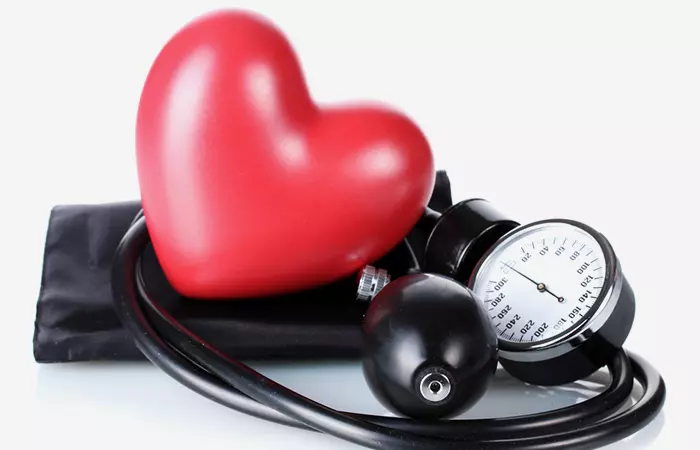










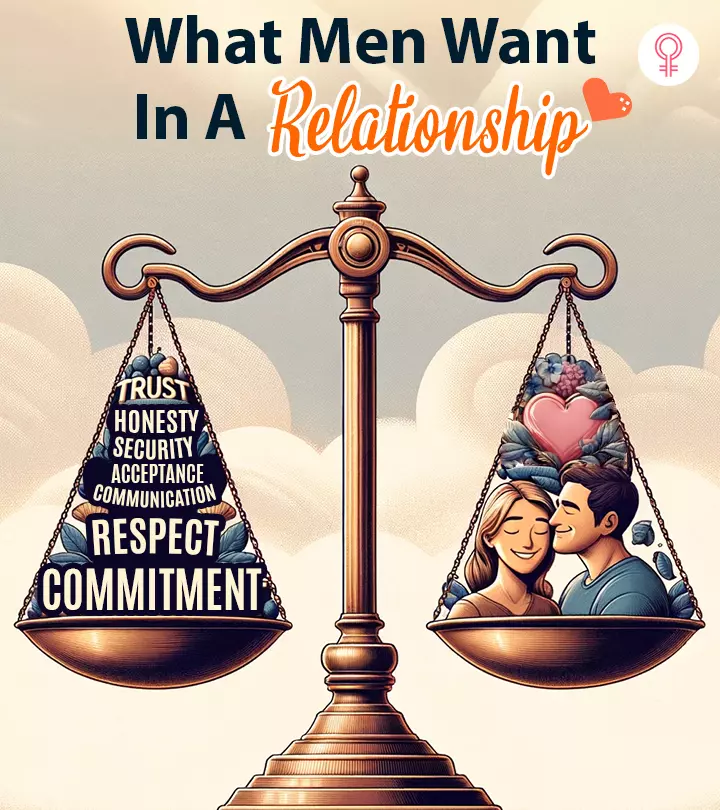





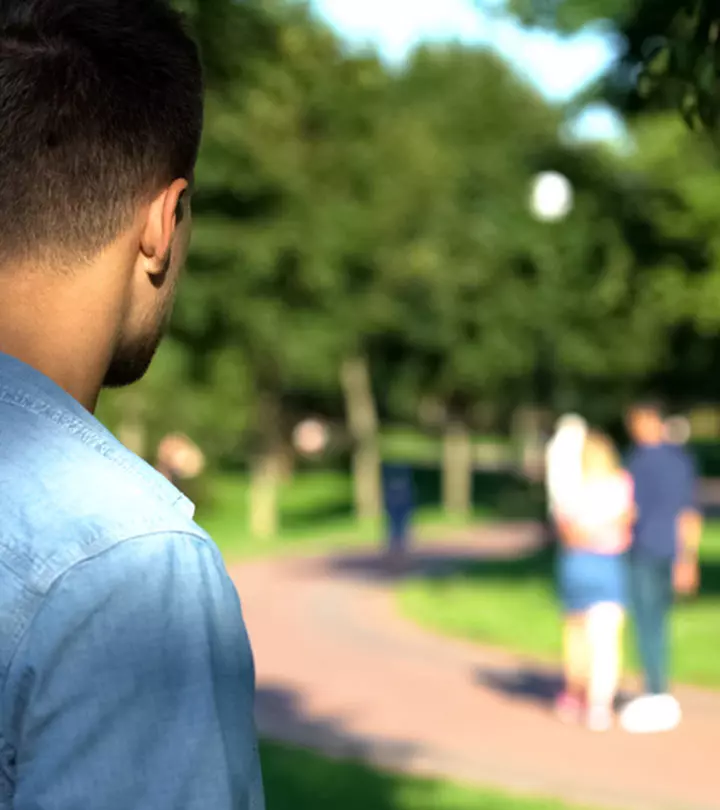

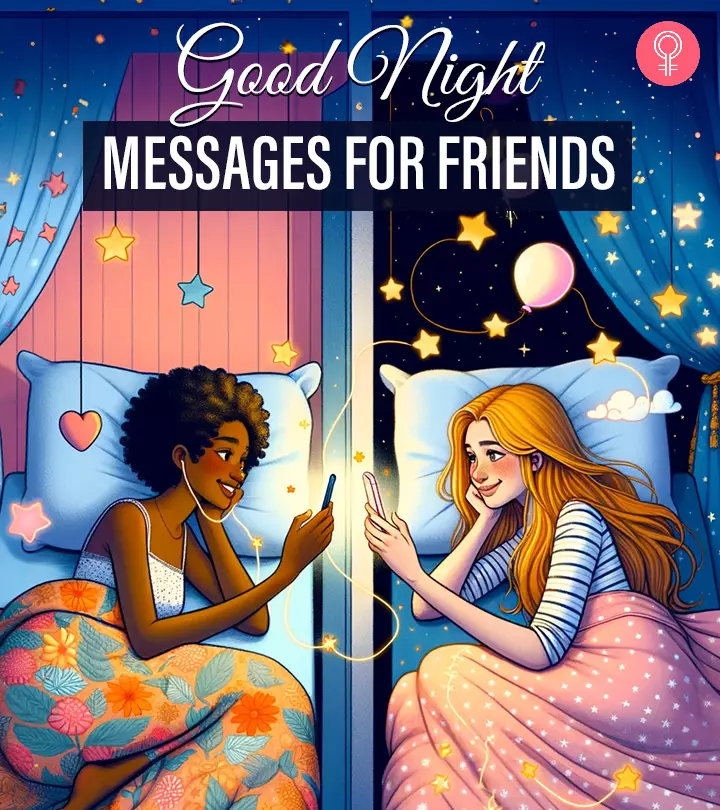





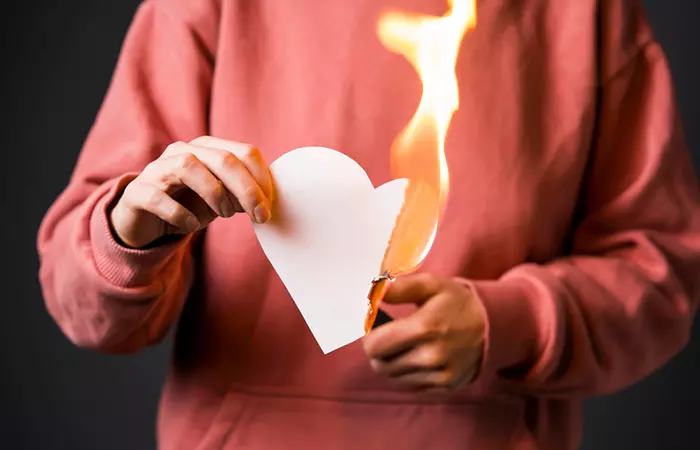
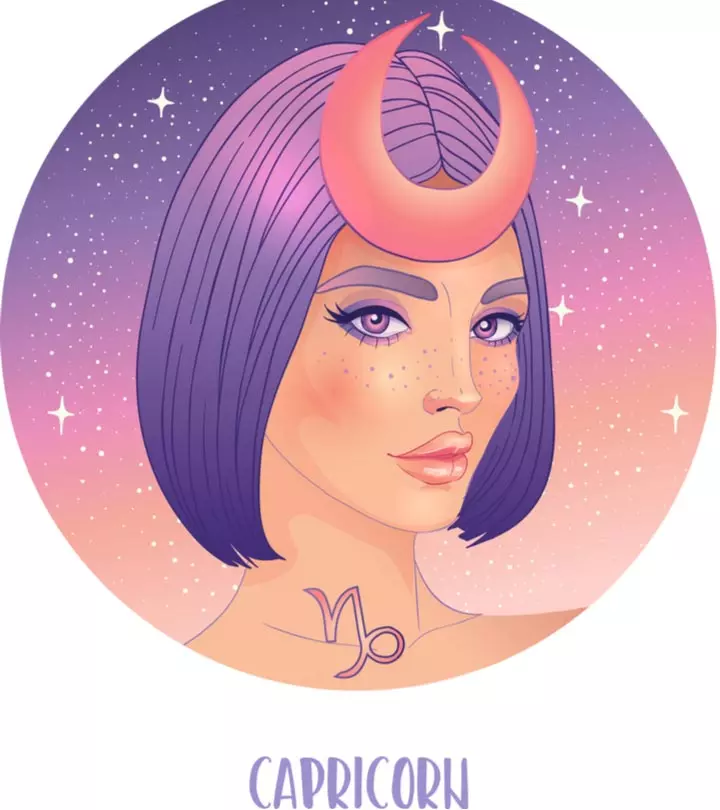



Community Experiences
Join the conversation and become a part of our empowering community! Share your stories, experiences, and insights to connect with other beauty, lifestyle, and health enthusiasts.